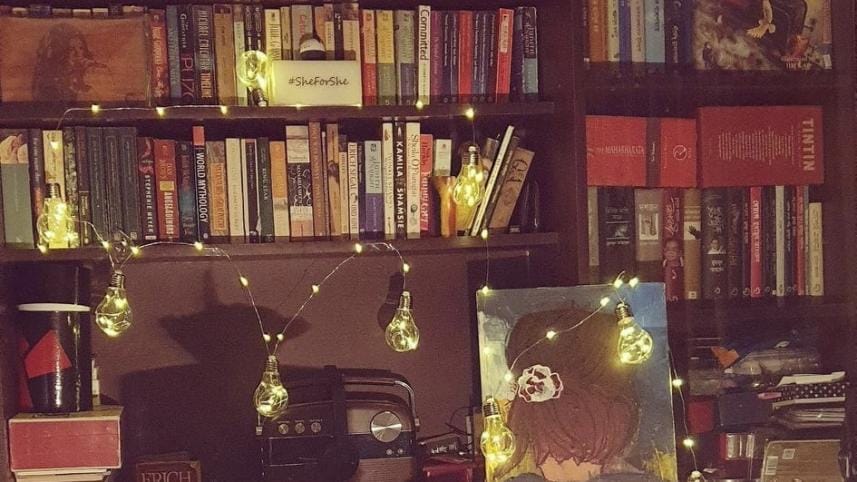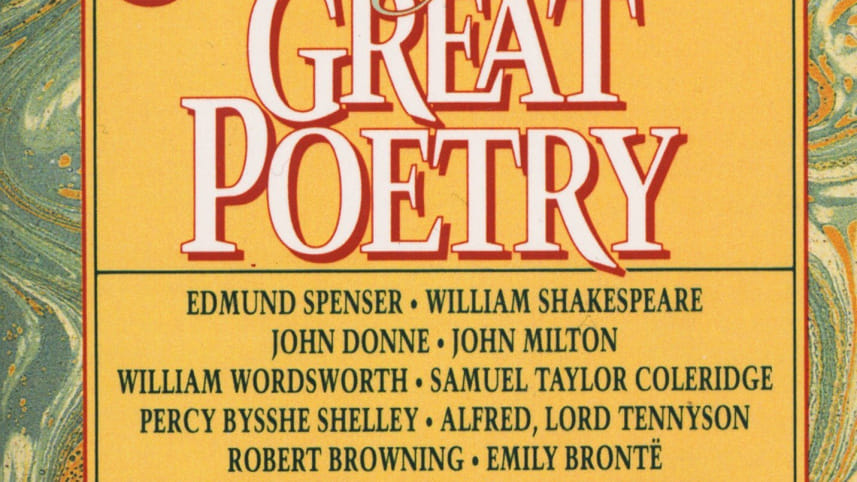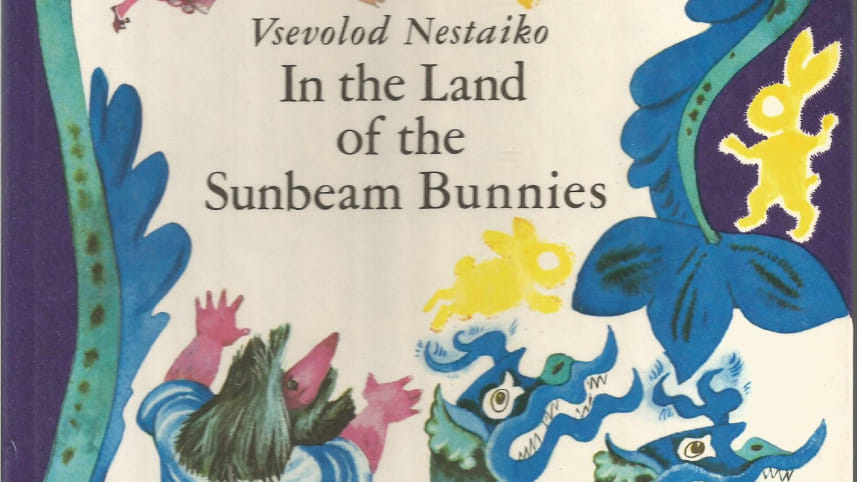Of books and nostalgia

There is something very interesting about how certain smells take you back in time, very much like a time machine would, if it ever existed.
I was supposed to begin this column today by writing about my favourite book. But while leafing through the battered copy of my all-time favourite, Erich Segal's The Class, I realised it would be best to explore and share the memories with that book on another day. The act of standing in front of my bookshelf, looking for a book to write about for my first column, suddenly turned into a walk down memory lane. Each book I looked at carried a personal story, it took me back to my school days and to even as far back a time as when I could hardly reach the top rack of a bookshelf!

Little white baily petals can bring back the astonishment you once felt at the typical '90s sight of a rickshaw in the streets of Dhaka, pedalling away in the rain with more than six young passengers all huddled together; colognes can remind you of those passionate forbidden nights; burnt toast of long gone school days, of rushing to catch the bus. New books can remind you of early morning tea at Nilkhet; and shoe polish, of relaxed weekends with your father. One would say that it is the same with the golden hits and songs you grew up listening to, tunes that make you nostalgic and yearn for the fun, free days. Bibliophiles will claim the same when they see the cover of a book, or hear the name of an author or a title they once treasured. They think back to the characters they fell in love with and wonder why they now fail to realise the passion they used to have towards reading for hours together, oblivious to the world rolling by.
My shelf is filled with books of all kinds—starting from books on politics, Bangla grammar, and shomogro (collections) of different writers and popular book characters, to the Harry Potter series and photocopied versions of Shakespeare from my university days. There are some books which are wearing away with time, but I simply do not have the heart to remove them or give them away. Six Centuries of Great Poetry bought in the late 1990s from Al Jarir bookstore, one of my favourite bookshops, where I grew up; a large copy of Many More Bedtime Stories that my father had bought for me, which I suspect has been partially eaten by rats; an old Oxford dictionary—a 10th birthday gift; and a set of books from my father's shelf in the 1980s—essays written by some of the greatest thinkers and scholars of all time. When I look at them, I am filled with memories.

Do schools still have libraries? And is it still mandatory for young students to borrow books from the library the way we had to, once every week? I am not sure! I have not been back to school in ages! But I do know that everything is digital now, and luckily for book lovers and readers, new releases can be browsed online and bought or rented almost immediately. I am sure present day readers would be surprised at how a school library used to run back in the '90s.
My school library was not a massive one, but it was not tiny either. Walls lined up with wooden shelves, the room mainly filled with chairs and tables for students to come and quietly read or make references for projects. The librarian, Ms Elizabeth Mathew, a tall and sweet lady from Kerala, India, was always looking for students she could put to work to organise the books strewn across tables, make sure they were put in the right shelves under the right categories and so on. Shipments of new books would come in every few months and that's when most students would try their best to stay away from the library and Ms Mathew.
Ms Mathew would require students to help her empty each box and carton, filled with travel-dust coating the books, to record details of authors, titles, and to number each book according to category and genre. Mind you, dear readers, this was all done by hand, with the old fashioned pen in large register-like notebooks. Each book would have pages with stamps of the school emblem and the very last page of the book would have a pocket-like structure stuck to it with library cards. Students were allowed to borrow or issue a book for a week (or more if necessary) and their names would be written on the respective library card. So if you borrowed or issued a book from the library, you could actually see, on the card, who had borrowed it before you did.
I loved every minute of the entire process! I would sometimes skip classes just to watch the librarian unload the boxes, scream for students to help her dust the books, flipping the pages to make sure that they were all there, beginning the task of categorisation and then finally preparing each book for issuing. "You girl!" she would say. "Don't think that I don't see you! You are skipping class again aren't you? Get me that stack of books from that table first and then run off to class!"
I would get her the stack of books she wanted, and then sit down beside her on the floor, sorting through the many versions of the Atlas she had just taken out from the box marked "Misc Stationary". I would see Ms Mathew's eyes shining at the sight of the new Atlases! In silence, both she and I would begin to mark, stamp, and categorise each of the books, forgetting all about sending this student back to class!
Two of my fondest possessions as a child were The Wonderful Wizard of Oz by L Frank Baum and In the Land of Sunbeam Bunnies by Vsevolod Nestaĭko. The books were big and heavy, each page filled with beautiful illustrations, and they had cost a fortune! My chacha (paternal uncle), Rezaul Karim, who was a young chap living on a budget like any other middle class young man did in the late '80s, bought these books for me from the New Market in Chittagong and never realised how eventually they would be read, re-read, and stay with me forever. Or maybe not forever! I was not more than six or seven years old when I got hold of these books and treasured them till I turned 18. Sadly enough, the move from my home in the Middle East to my homeland Bangladesh had me lose much that I had treasured back then—posters, magazines, notebooks, strange wooden jewellery, handmade friendship bands, slam books, and an early version of the Geetobitan with favourite lines and songs pencil-marked by my parents, including the books that I had cherished for so long.
Dramas within dramas by the Bard, descriptions of garden picnics in the Georgian era, a young woman dreaming of a utopian world where women are free, a young man roaming about in a yellow punjabi, and brooding romantic heroes making you wish they were real—it's crazy how mere pages bound together manage to free you, comfort you, heal you, and how they let you discover a whole new world you, otherwise, had no idea existed at all!
Elita Karim is a journalist, musician, and editor of Star Arts & Entertainment and Star Youth, The Daily Star. She tweets @elitakarim.




 For all latest news, follow The Daily Star's Google News channel.
For all latest news, follow The Daily Star's Google News channel.
Comments